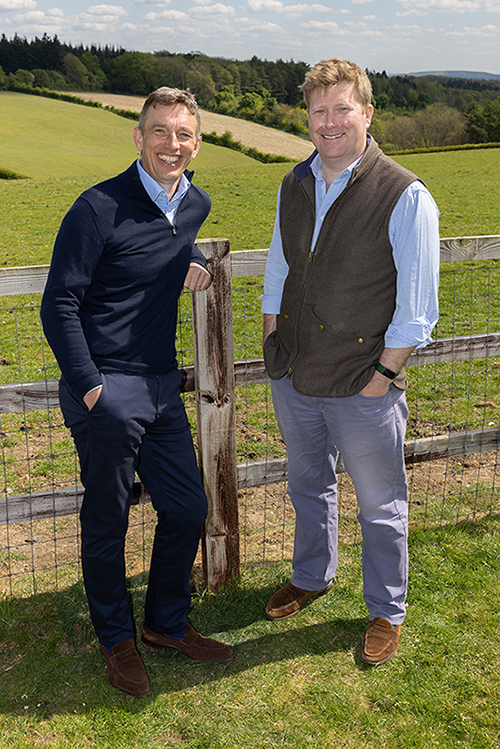The future of rural estates: People, Planet and Profit
The Rural Report discussed People, Planet and Profit with the new heads of Knight Frank’s Rural Consultancy and Farms & Estates teams.
4 minutes to read
James, Will, thanks for joining me. The theme which runs through the report is the Three Ps: People, Planet and Profit. James, first of all, what’s your take on the People aspect?
JF This is about the opportunity to have real social impact, and it also reflects our purpose and our commitment to enhance people’s lives and environments. That may be through using place-making to connect places and activities to ensure that we have thriving rural communities, or the opportunity to develop solutions to some of society’s big issues such as the housing crisis and the concerns around mental and physical health and wellbeing.
Rural businesses need to have an absolute focus on their customers, don’t they?
JF More and more so. The world is changing and the customer base is growing. Whether its estate tenants or visitors to the estate, transforming the customer experience of an estate as a place to work, live, visit and stay is key to a prosperous and resilient future.
There’s a clear link between what the customer wants and Planet, the second element of our theme, isn’t there?
JF The government is committed to paying public money for public goods and pretty much everybody is interested in climate change and what’s happening to the environment. Farms and estates are often cast as contributors to the problems and now have a wonderful opportunity to change the narrative by implementing solutions to tackle climate change and the loss of biodiversity, engaging existing and new customers, together with the wider public, in a more positive discussion that will be the route to a sustainable future.
Will, on the People theme, are you seeing a change in potential buyers’ aspirations? Who’s picking up the phone saying they want to buy a farm or an estate?
WM We’ve seen a whole new raft of buyers coming into the market – a completely new section of the market that we hadn’t seen before. Traditional landowners expanding and farmers looking for tax-driven purchases have now been joined by buyers purely focused on environmental enhancement and the buzzword of ‘rewilding’.
Often, they will not have experience of owning or managing rural land, so presumably the skill sets and advice required from businesses like Knight Frank is incredibly important to them?
WM Most of these people will need a lot of strategic advice. It is not something they’ve dealt with before, but we are seeing an increase in both philanthropic purchases wishing to make a difference through landownership and those motivated by corporate ESG requirements.

L to R James Farrell, Head of Rural Consultancy and Will Matthews, Head of Farms & Estates
Is it just families buying, or is there an institutional change?
WM No, we’re seeing a huge interest from institutional purchasers who realise that they need to be fulfilling their ESG credentials and landownership is one of the biggest things they can do.
James, where do you see the Profit, the third P that we’re looking at, in rural land-based businesses?
JF Every estate needs to operate off sound financial foundations. What this means is different for every business. With change underway to the funding of the rural economy, the exciting thing is the opportunity to find new ways of working, new ways to collaborate to enhance the environment or serve local communities and, through that, create prosperous, more resilient and sustainable estate economies. The chance to do well by doing good has never been better.
Are your new breed of buyers interested in Profit at all, Will?
WM I think that for many, conservation is definitely at the heart of what they’re trying to do. But, ultimately, they will want to see that their asset is covering its costs or even better actually making them some money. It will be interesting to see how quickly they realise that they will need some sort of strategic advice to achieve that.
Carbon seems to have huge potential. Are people pricing in carbon when they are making you offers?
WM The challenge at the moment is that the market is so young significant assumptions about price have to be made. As it becomes more established most involved predict we will see an increase in attributable value, at which point it will begin to be factored into pricing.
Staying with Profit, what is your view on the government’s environmental aspirations, the need for change in land use and the consequent need for our clients to have profitable businesses?
JF The two have to go hand-in-hand, otherwise it simply won’t happen. One of the challenges at the moment is that landowners and farmers are being asked to do a lot more to get the money that’s available, and that comes at a cost. Inevitably we will see some businesses fail in their efforts to adapt to the new world and this will mean opportunity for others.